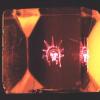I suffer from a brain disease that apparently nobody else but me and to a less severe extent my brother have. I'm in the process of figuring out what is the pathogenesis and how to treat it and I hope you could give me some ideas. My case has been discussed in my previous thread (http://www.longecity...hedonia-thread/), but it eventually became clear that my disorder is unlike that of anyone else's and must not be described as "anhedonia", therefore making that thread and many of its posts obsolete.
What I suffer from is technically called "consummatory anhedonia" (http://www.ncbi.nlm....pubmed/20603146), and more specifically, of the "objective" type. Consummatory anhedonia (CA) means inability to experience pleasure when stimulated with normally pleasurable stimuli such as music, sugar or sex. This differs from depression etc. in the sense that all my emotions as well as motivation are intact, it is only the pleasure that is gone - and the pleasure is fully gone. To give you an example, if I have sex everything else is completely normal - the arousal, the lust, the motivation, the excitement, the zest - but the act fails to "lift me up" so to speak, and this is especially obvious in the case of orgasm which makes me feel nothing. Noteworthily, recreational drugs such as methamphetamine, opium and cannabis fail to induce pleasure in me as well (ie zero euphoria). In my case this CA is objective (OCA) in the sense that instead of me only having some difficulty subjectively experiencing the pleasure, it seems that the pleasure is fundamentally not being generated at all: I, just like my brother, have very lacking reaction to opioids such as morphine suggesting a fundamental dysfunction of the opioid system. I do not react in any way even at high doses, and my brother has a minimal reaction. Even though considering endorphins simply as the direct source of pleasure is a simplified and outdated view, evidence points to the opioid system and specifically the mu receptor in general being at the centre of pleasure generation (http://tinyurl.com/ohcxpz4). Another hallmark feature of this disease is our lack of reaction to GABA-B agonists (GHB and phenibut), suggesting that the opioid and pleasure dysfunction might be (but surely is not necessarily) GABA mediated. GABA has been found to play a profound role in pleasure regulation in rodents.
There are some other symptoms that might be related, mainly concerning sleep, general stimulation and circadian rhythm which is out of order in an odd way, but they are less pronounced than the CA. Some research on mice links these other symptoms to hypofunctional GABA-B.
I have now suffered from this for years (2,5 years at "full blown" scale to be precise) and have been trying to find the cure for a rough year. As my previous thread indicates, I've gone through very extensive exprimentation with various drugs. I tried all the recreational drugs and then more sophisticated alternatives based on various theories. Nothing has helped and its beginning to look like direct neuromodulation might not be the answer. To me restoring GABA-B function via drugs still seems like a potential cure, but I think the answer might lie somewhere else as well. I am soon going to get CT/MRI scans to see if there are any structural anomalies (like a tumor) as well as complete blood analysis for minerals and metals to see if anything is out of the ordinary. But obviously, the truth may still remain unknown after these. So what else could I do?
Basically, I have two major questions.
1. What tests/examinations could I get done that could potentially reveal something about the pathology? What types of brain scans and in what setting (rest, under the influence of a drug, engaging in normally pleasurable activities..)? What should blood/urine/hair be tested for? Can EEG reveal something? Any reason to try to get neurotransmitter quantities evaluated? What else?
2. What types of brain dysfunction could theoretically be the cause of my condition? Erroneous neurochemical signalling, neurodegeneration, tumor, metal poisoning? What else?
To be clear, I made this thread for the purpose of developing general ideas about what kind of a disorder we may be dealing with and what avenues should I follow to gain more insight. Discussion about what receptors exactly need to be modulated in what way exactly is another topic and I deliberately didn't go into that here, if you wish to discuss that perhaps PM me, I do want to hear your ideas. Also feel free to inquire about the specifics of the symptoms, tested drugs, theories, findings etc.
Thank you!
Edited by Vieno, 24 October 2013 - 10:20 AM.
























































